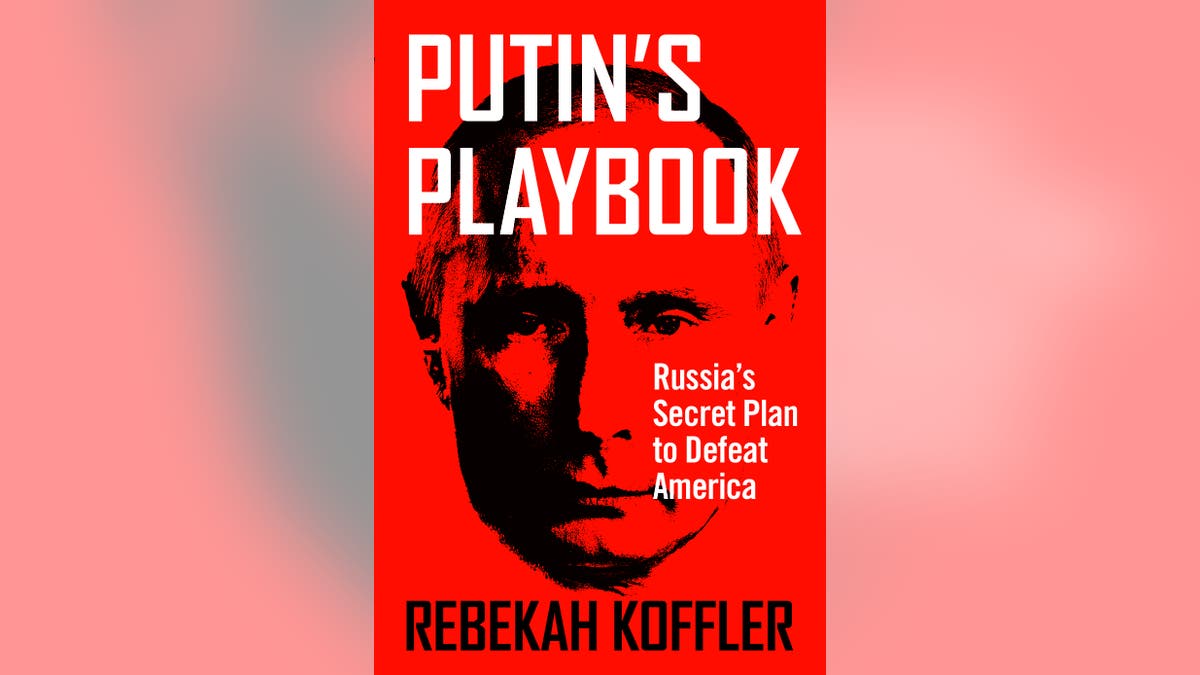Russia gaining military strength along Ukrainian border
Fox News National Security correspondent Jennifer Griffin on Russian military approaching Ukrainian border and the U.S. response
As a former Defense Intelligence Agency (DIA) officer and specialist in Russian doctrine and strategy who participated in dozens of war games that simulated a U.S.-Russia conflict, I am gravely concerned about the high risk of Washington going to war over Ukraine.
If you thought $2 trillion and 6,000 American lives were a steep price to pay for a no-victory outcome of a 20-year engagement in Afghanistan, you ain’t seen nothing yet.
U.S. costs and losses in a war with nuclear Russia would be catastrophic. Such a war is unwinnable, and it is not worth sacrificing American lives to wage.
WHEN ‘OLD FRIENDS’ BIDEN AND CHINA'S XI MET, IT WAS BAD FOR AMERICA
Russia’s elevated force posture along the Ukrainian border – including 114,000 soldiers, special forces, intelligence operatives and heavy weaponry, counting tanks – is reminiscent of Putin’s 2014 invasion of Ukraine. This, along with recent high-risk encounters between U.S. warships and the Russian navy in the Black Sea, and Putin’s warning on Nov. 13 about the U.S. throwing down the gauntlet to Moscow, constitute what’s called in the intelligence business "indications and warnings" of an impending crisis.
Concerned about the high probability of Russia’s outright invasion of Ukraine, U.S. intelligence has warned European allies that there is but a narrow window of opportunity to deter Putin.
Predictably, Washington "experts" discharge advice that is not grounded in reality, failing to understand that while Ukraine is part of Russia’s vital interests, it is not part of America’s. Some advocate accelerated acceptance of Ukraine into NATO, which in their "expert" view would guarantee Ukraine’s security by virtue of obligating the U.S. and NATO to step into a Russo-Ukrainian conflict on behalf on Kiev. Others call for troop deployments into the region to deter KGB spymaster Putin.
For centuries, Russia has viewed Ukraine as its security buffer against foreign invasions.
Beleaguered and bullied, Ukraine should be free to pursue its own development path. But sadly, its geostrategic location, bordering on three sides the much bigger and military stronger Russia, dictates its destiny in the harsh world of realpolitik. Certainly, at least, in Putin’s world.

The Russian leader has stated multiple times that the admission of Ukraine into NATO – a military alliance that Russia views as its top threat – would cross a "red line." For centuries, Russia has viewed Ukraine as its security buffer against foreign invasions. Not that this is justified or good. But that is how it is and has been.
Ivan Il’in, a Russian Orthodox Christian thinker whose ideas Putin drew from in developing his own ideology, stated in his writings that an independent Ukraine would be an unthinkable "madness." Like Il’in, Putin firmly believes that it is essential to rule all the lands of Imperial Russia together to ensure its self-defense. While the maintenance of empires may be alien and anachronistic to U.S. thinkers, it dominates the Russian mindset.
Washington "experts," who are notoriously bad at understanding what motivates America’s foreign adversaries, have no clue about the visceral, centuries-old sense of possessiveness that Russia feels about Ukraine. The reintegration of Ukraine and other post-Soviet states into a Russian-led union is something that is viewed by Moscow as a matter of national survival. It is this mentality that is at the root of Putin’s actions and policies, such as the annexation of Crimea.
CLICK HERE TO GET THE OPINION NEWSLETTER
Putting U.S. troops in the theater, in Russia’s backyard, would be interpreted by the Kremlin as a precursor to possible U.S. kinetic action against Russia. The very presence of U.S. deployed forces so close to a conflict would increase the pressure on Washington, which was just chased out of Afghanistan, to intervene on behalf of Ukraine.
Such an action would spur Moscow to activate its preemptive "self-defense" response, targeting the U.S. homeland with destructive cyber and space warfare attack. With Russia’s recent anti-satellite missile strike test, Putin has demonstrated Russia’s ability to cripple U.S. satellites, on which we are reliant not only for our war fighting capability but for countless civilian purposes.
Putin, who fears becoming a target of Washington’s doctrine of "regime change" that has claimed the likes of Saddam Hussein and Moammar Gadhafi, is primed for overreaction. Once the shooting starts, the war could very well go nuclear and involve debilitating cyber strikes on America’s power grid.
CLICK HERE TO GET THE FOX NEWS APP
No one has been able to win a war with Russia on Russian soil. Just ask France’s Napoleon, Germany’s Hitler, and the Swedes, whose army was demolished in 1709 by the soldiers of Peter the Great.
Is Ukraine among America’s vital security interests? Is America’s safety, security, territorial integrity and long-term survivability even remotely reliant on Ukraine? The answer to both questions is a resounding "no."














































